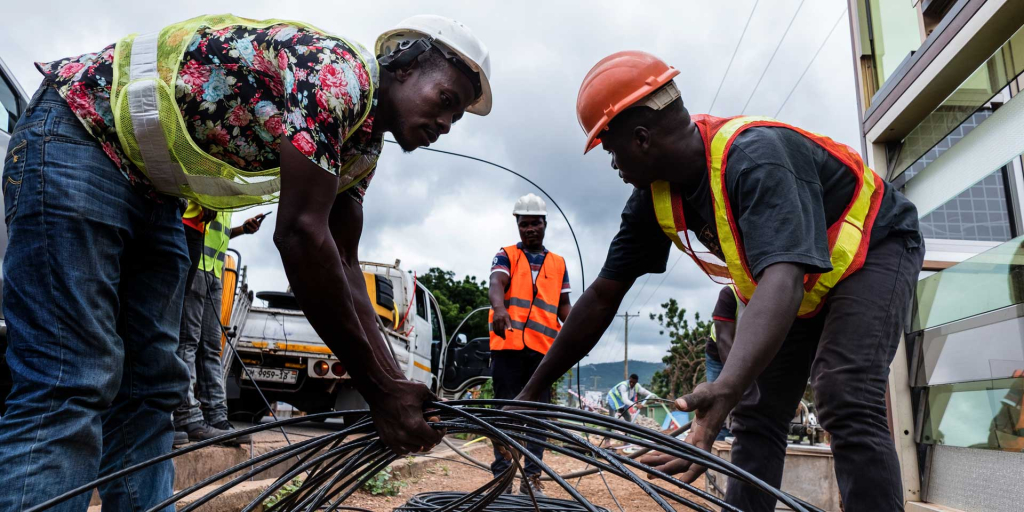Nigeria’s persistent broadband access gap is costing the country an estimated $15 billion annually, according to Yinka Isioye, Chief Experience Officer of internet service provider FibreOne. Speaking at the 21st Titans of Tech Conference in Lagos, Isioye described reliable connectivity as “as vital as oxygen” for advancing digital infrastructure, education, healthcare, and economic growth, yet noted that over 60% of Nigerians and 70% of Africans remain excluded from consistent access.
During his keynote address titled “Game Changers: Shaping the Future of Technology,” Isioye outlined stark disparities in internet affordability and speed. Nigerian users, he said, pay two to four times more per megabit per second than global averages, despite connection speeds being “five to ten times slower.” Citing World Bank data, he emphasized that accelerating broadband penetration could transform economic prospects: a 10% increase in access drives 1.4% GDP growth in developed nations, while Nigeria could unlock $19 billion—and potentially $45 billion with multiplier effects—by achieving 30% additional coverage.
The human cost of the gap is equally severe. Over 45 million students risk falling behind in education without improved connectivity, Isioye warned, while rural healthcare innovations like telehealth remain out of reach. Economically, Nigeria loses billions in missed foreign investment by failing to position itself as a global outsourcing destination. The $15 billion annual loss, he noted, eclipses the combined federal health and education budgets and equals the yearly allocation received by a single Nigerian state.
Barriers to progress include exorbitant infrastructure costs, with fiber deployment reaching $30,000–$50,000 per kilometer due to civil works, permitting fees, security challenges, and rugged terrain. Unstable power supplies compound operational costs, consuming 30–40% of providers’ budgets for backup generators. Low revenue per user—$10–$20 monthly in Nigeria versus $50 in advanced markets—further delays profitability, discouraging investment.
Despite these hurdles, Isioye praised local telecom operators and the government’s digital economy initiatives, including President Bola Tinubu’s pledge to prioritize tech-driven growth. To close the gap, he proposed mobilizing pension funds and local investors for infrastructure financing, creating shared rural fiber networks, and scaling solar-powered connectivity solutions. Tax incentives for providers offering discounted access to households with unemployed youth in training programs could also bolster digital inclusion.
Pedro Aganbi, convener of the Titans of Tech event, framed the conference’s focus on innovators reshaping technology’s role in society. His remarks underscored the urgency of collaborative, inclusive strategies to harness broadband’s potential—a resource Isioye termed “life-changing connectivity” for millions still awaiting its transformative impact.
